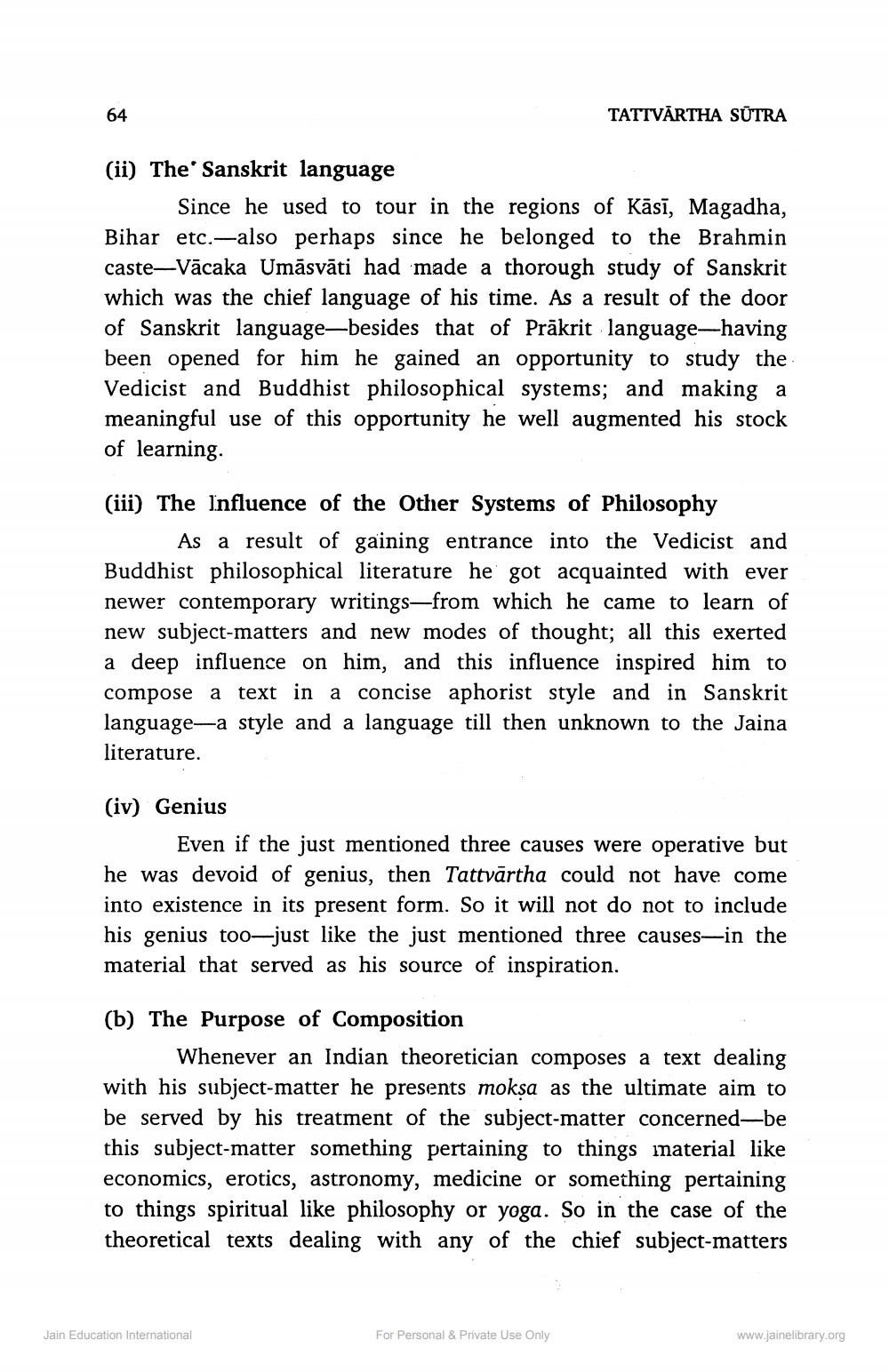________________
64
TATTVĀRTHA SŪTRA
(ii) The Sanskrit language
Since he used to tour in the regions of Kāsī, Magadha, Bihar etc.—also perhaps since he belonged to the Brahmin caste—Vācaka Umāsvāti had made a thorough study of Sanskrit which was the chief language of his time. As a result of the door of Sanskrit language—besides that of Prākrit language-having been opened for him he gained an opportunity to study the Vedicist and Buddhist philosophical systems; and making a meaningful use of this opportunity he well augmented his stock of learning.
(iii) The Influence of the Other Systems of Philosophy
As a result of gaining entrance into the Vedicist and Buddhist philosophical literature he got acquainted with ever newer contemporary writings—from which he came to learn of new subject-matters and new modes of thought; all this exerted a deep influence on him, and this influence inspired him to compose a text in a concise aphorist style and in Sanskrit language-a style and a language till then unknown to the Jaina literature.
(iv) Genius
Even if the just mentioned three causes were operative but he was devoid of genius, then Tattvārtha could not have come into existence in its present form. So it will not do not to include his genius too—just like the just mentioned three causes in the material that served as his source of inspiration.
(b) The Purpose of Composition
Whenever an Indian theoretician composes a text dealing with his subject-matter he presents moksa as the ultimate aim to be served by his treatment of the subject-matter concerned—be this subject matter something pertaining to things inaterial like economics, erotics, astronomy, medicine or something pertaining to things spiritual like philosophy or yoga. So in the case of the theoretical texts dealing with any of the chief subject matters
Jain Education International
For Personal & Private Use Only
www.jainelibrary.org




